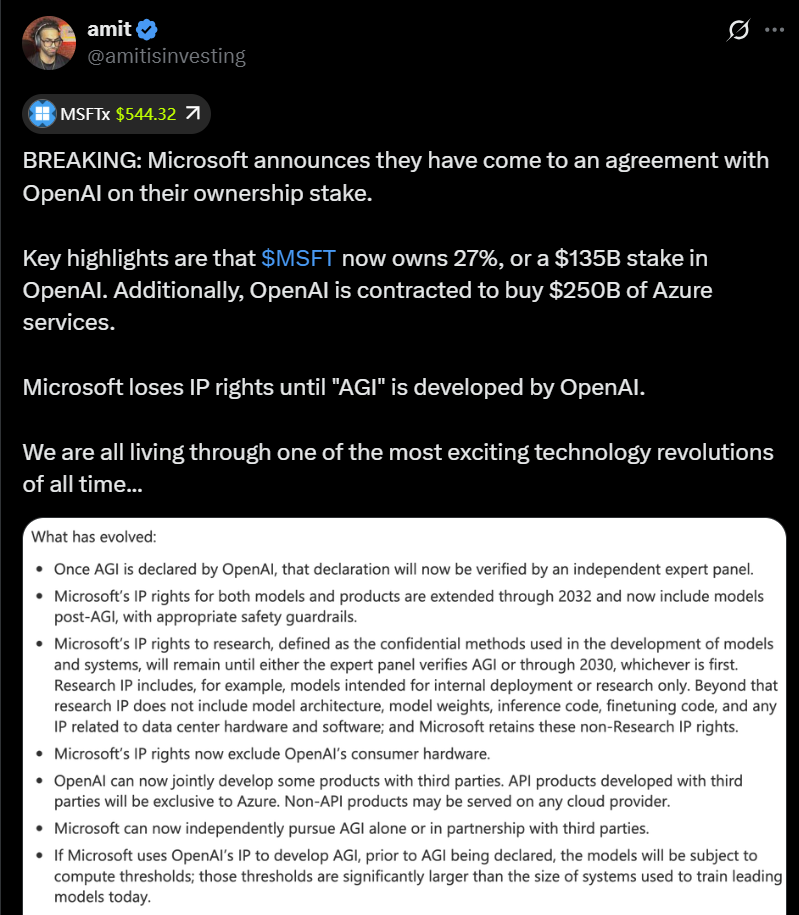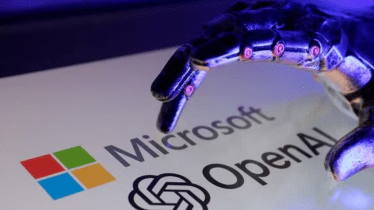OpenAI Public Benefit Corporation: Microsoft Gains 27% Stake
OpenAI, known for developing ChatGPT, has officially transitioned into a public benefit corporation. This new organizational structure is intended to provide OpenAI greater capital-raising flexibility as it scales its artificial intelligence initiatives, according to Cointelegraph and The Wall Street Journal.
Background: New Structure and Strategic Investment
By converting to a public benefit corporation, OpenAI maintains a for-profit business model while committing to public good responsibilities. This approach enables the company to raise funds, issue equity, and deliver investment returns. One of the most significant outcomes of the restructuring is Microsoft acquiring a 27% stake in the new entity, estimated at $135 billion in value. The deal further extends Microsoft’s access to OpenAI’s foundational artificial intelligence technologies for seven more years.
Additionally, OpenAI has committed to spending $250 billion on Microsoft’s cloud computing service, Azure, over the course of their partnership. This move further intertwines the operations and growth paths of both companies.

Market Impact and Ongoing Criticism
OpenAI’s shift to a public benefit corporation has not settled criticism from some industry leaders. Elon Musk, one of OpenAI’s original founders, has argued that the transformation marks a departure from OpenAI’s nonprofit principles in favor of commercial interests. Nevertheless, the company continues to advance its projects, including ChatGPT, reportedly used by an estimated 800 million people each week worldwide, underlining its status as the most popular large language model.
The integration of ChatGPT into AI-powered trading bots is another new development, especially for cryptocurrency and stock market applications. These systems leverage the language model to interpret market signals, analyze real-time data, and adapt trading strategies on the fly.
AI Competition in Crypto Trading Applications
Recently, a study compared the performance of various large language models tailored for cryptocurrency trading. Grok, developed by X, and DeepSeek, a leading Chinese AI platform, were found to outperform both ChatGPT and Google’s Gemini in simulated trading scenarios. According to researchers, all models started with $200 in simulated capital, scaling up to $10,000, with transactions executed on the Hyperliquid decentralized exchange platform.
While ChatGPT continues to play a significant role in both public-facing and specialized AI applications, the emergence of rival models highlights the growing competitiveness of the artificial intelligence sector, particularly in financial technology.
What’s Next for OpenAI and Microsoft
The conversion to a public benefit corporation and the substantial financial and technological commitments with Microsoft mark a new phase in OpenAI’s growth. These moves position both companies to pursue expanded AI development and commercial applications in the years ahead. Analysts will closely watch how OpenAI balances its public benefit commitments against the demands of commercial expansion, investor returns, and regulatory scrutiny.
For more developments on AI in cryptocurrency, see Vizi’s cryptocurrency coverage.
Sources
Cointelegraph
The Wall Street Journal



















